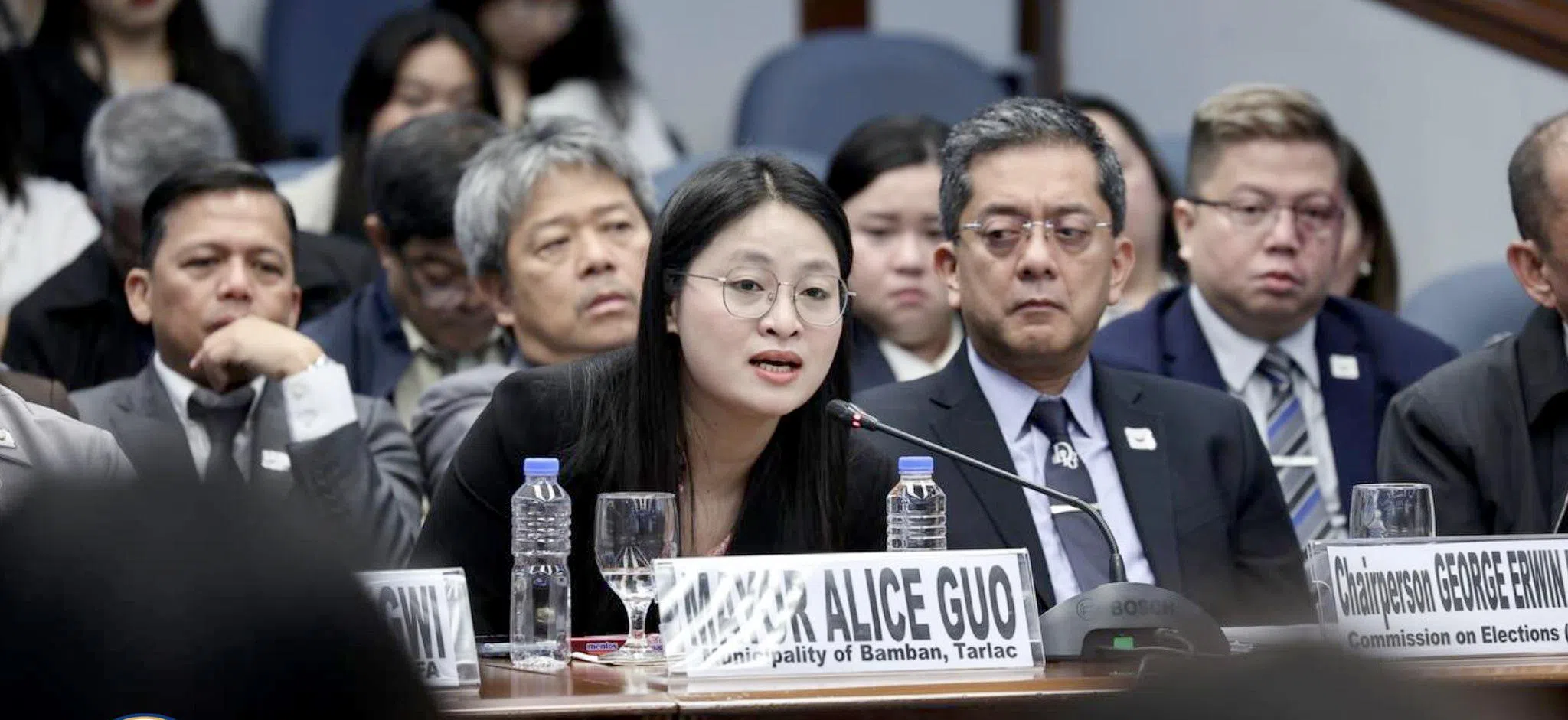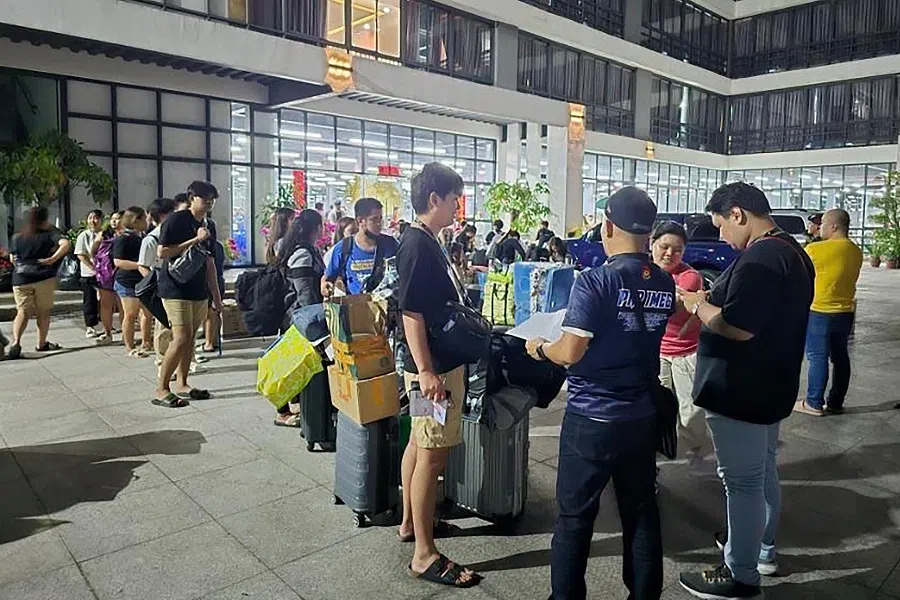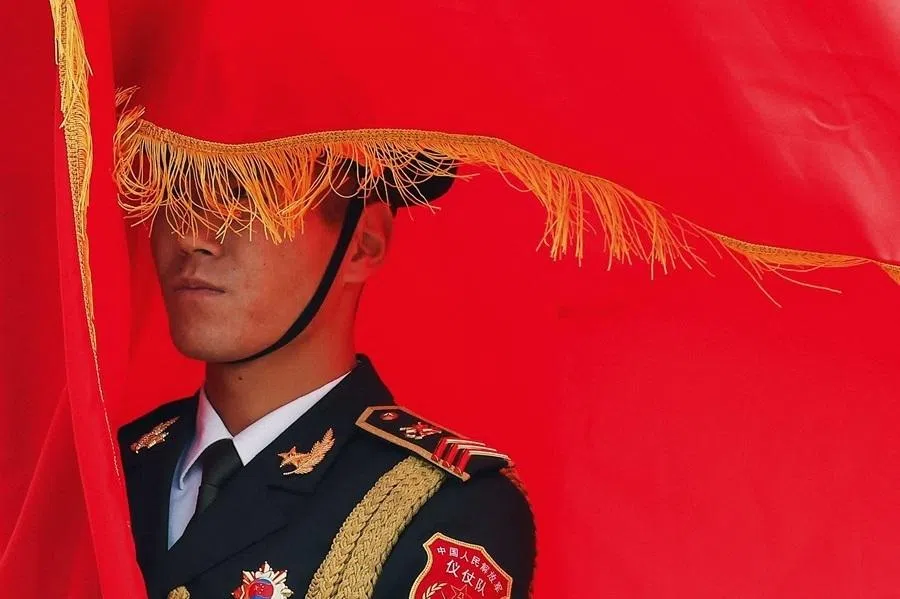Mayor Alice Guo and the complexities of Chinese-Filipino identity
With mayor Alice Guo’s allegiance questioned, nationalist discourses have been directed against the Chinese. Philippine academic Joseph Ching Velasco examines the issue.

When asked to describe her childhood during a Senate Inquiry, Mayor Alice Leal Guo repeatedly quipped: “Lumaki po ako sa farm [I grew up on a farm].”
Instead of her Senate testimony providing clarity on how she obtained Philippine citizenship, her ambiguous response raised more questions than answers. The recently suspended mayor of Bamban, Tarlac has been embroiled in multiple controversies, including her alleged links with Philippine Offshore Gaming Operators (POGOs), unclear family lineage, dubious citizenship, and even being a spy for China.
What is interesting about the Philippine political process is that once a Chinese Filipino enters politics, their Chineseness becomes muted and subdued. This did not happen for Alice Guo...
My aim in writing this piece is to offer a sobering perspective on this matter without feeding the outrage machine that has defined the discussions around this issue in public discourse.
Predictably, Philippine society and institutions have capitalised on drumming up nationalist discourses against the Chinese. Alice Guo has become the poster child of Rodrigo Duterte’s China-friendly policies, fuelling problematic ethnic politics within Filipinos’ everyday existence. These policies were implemented with blatant disregard for public sentiment of extreme distrust of China and the entities associated with the country.
Being in an elected position, Alice Guo triggered anxieties about the Philippines’ tense relationship with China, the antagonisms between Filipinos and Chinese Filipinos, and fuelled the uncritical conflation of different forms of Chinese in the Philippine sociopolitical imagination.
Stance of Filipino Chinese under the spotlight
This places the Chinese Filipinos in a problematic situation where they must reaffirm their Filipino identity and performatively prove their loyalty and allegiance to the Philippines, often facing suspicion. Nationalist discourses have, for the benefit of their own legitimacy and power, perpetuated suspicion against the ethnic Chinese minority. This entails the need for Chinese Filipinos to distance themselves from the spectre of Alice Guo.

I have to point out that Alice Guo is the exception and not the norm. The ethnic Chinese have legitimately occupied various political positions in the Philippines, some of which include former President Corazon Aquino, mayor Alfredo Lim, and Senator Sherwin Ting Gatchalian.
What is interesting about the Philippine political process is that once a Chinese Filipino enters politics, their Chineseness becomes muted and subdued. This did not happen for Alice Guo, she has constantly been marked as Chinese despite her efforts to disavow her heritage. The mayor’s last name, Guo, even raises certain peculiarities as most Chinese Filipinos officially have Hokkien-sounding names, not Mandarin.
Alice Guo and her involvement with Philippine Offshore Gaming Operators
Aside from Guo’s hazy recollection of how she obtained Philippine citizenship, it does not help that she is allegedly involved with POGOs and linked with individuals accused of money laundering.
The boom in the POGO industry can be attributed to President Rodrigo Duterte’s policies, which legitimised the operations of these online casino entities during his administration. While China strongly opposes the offshore gaming industry, the Philippines, under Duterte, fully embraced the existence of POGOs.
This led to the influx of PRC nationals into the Philippines, which had unfortunate consequences. First, it contributed to the rise in crime such as human trafficking, aiding foreign fugitives, and kidnappings. Second, it allowed the creation of establishments that cater exclusively to Chinese nationals; these enclaves are unwelcoming to Filipinos. It effectively demarcated specific locations in the Philippines that are off-limits to Filipinos.
Filipinos mostly conceive Chinese Filipinos, mainland Chinese, Taiwanese, Hong Kong Chinese, Macau Chinese, and Singaporeans as one common amorphous entity without making nuanced distinctions.
To make matters worse, her business associate is convicted of money laundering. According to a Securities and Exchange Commission document, the incorporators of Baofu Land Development Inc. include mayor Guo and Zhang Ruijin. The latter was sentenced to fifteen months in prison in Singapore for forgery-related offences. Philippine Senator Risa Hontiveros intimated that Baofu was deliberately created to abet criminal activities and exploit the country’s flawed regulatory systems.
Mayor Guo is also accused of being an asset to Beijing, although this seems to be mere speculation at this point. If there is evidence of her possible involvement in espionage, she would have to be tried in a court of law and not the court of public opinion.

While we can easily blame Alice Guo and her cohorts for their attempts to take advantage of flawed Philippine systems, the agencies are also at fault. It highlights how they are not doing enough to ensure the integrity of processes. It is concerning how the Commission on Elections allowed her to run for mayor without conducting due diligence about her identity and citizenship, one of the basic requirements for candidacy.
The subject position of Chinese Filipinos within the nation
The Philippine state has an ambivalent and, to some extent, antagonistic relationship with the ethnic Chinese population. They are viewed as “economically dominant, politically disloyal, and culturally different”. Filipinos mostly conceive Chinese Filipinos, mainland Chinese, Taiwanese, Hong Kong Chinese, Macau Chinese, and Singaporeans as one common amorphous entity without making nuanced distinctions.
The uncritical conflation of the Chinese in the Philippines creates opportunities for the nation to promote exclusionary practices and discriminate against them collectively. Subsequently, Chinese Filipinos are implicated in a prejudicial politics of recognition within the Philippine postcolonial state, which attempted to establish national identity through problematic notions of ethnic and cultural purity.
The case of Alice Guo simply fuelled further suspicion against the Chinese Filipinos. I note that the Chinese presence in the Philippines dates back to pre-colonial times. Several waves of Chinese migration occurred, some of them landed in the Philippines and other parts of Southeast Asia.
What makes the recent influx unusual is its cause, which is the accommodation of POGO interests without considering long-term repercussions. This has led to heightened tensions and a resurgence of distrust toward the ethnic Chinese population.
What should be done at this point is to reverse the special concessions given by the state to these offshore gaming establishments. The Philippines should also begin untangling the imaginary links that were created among POGOs, China as a state, Chinese Filipinos, and other forms of Chinese in the country. These entities, each with their own distinct interests, preferences, and allegiances, should be treated separately rather than as a single, amorphous bloc.



![[Big read] When the Arctic opens, what happens to Singapore?](https://cassette.sphdigital.com.sg/image/thinkchina/da65edebca34645c711c55e83e9877109b3c53847ebb1305573974651df1d13a)

